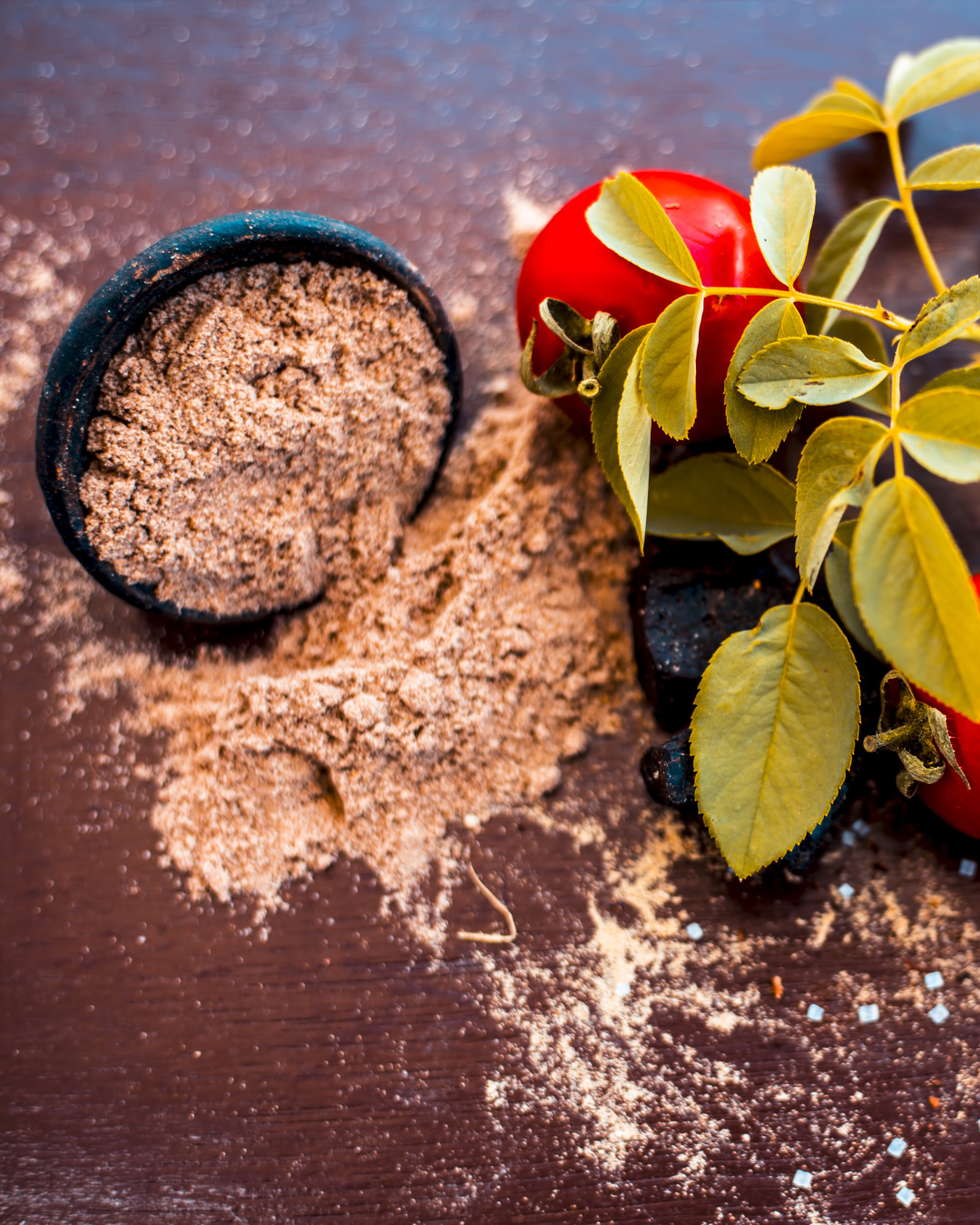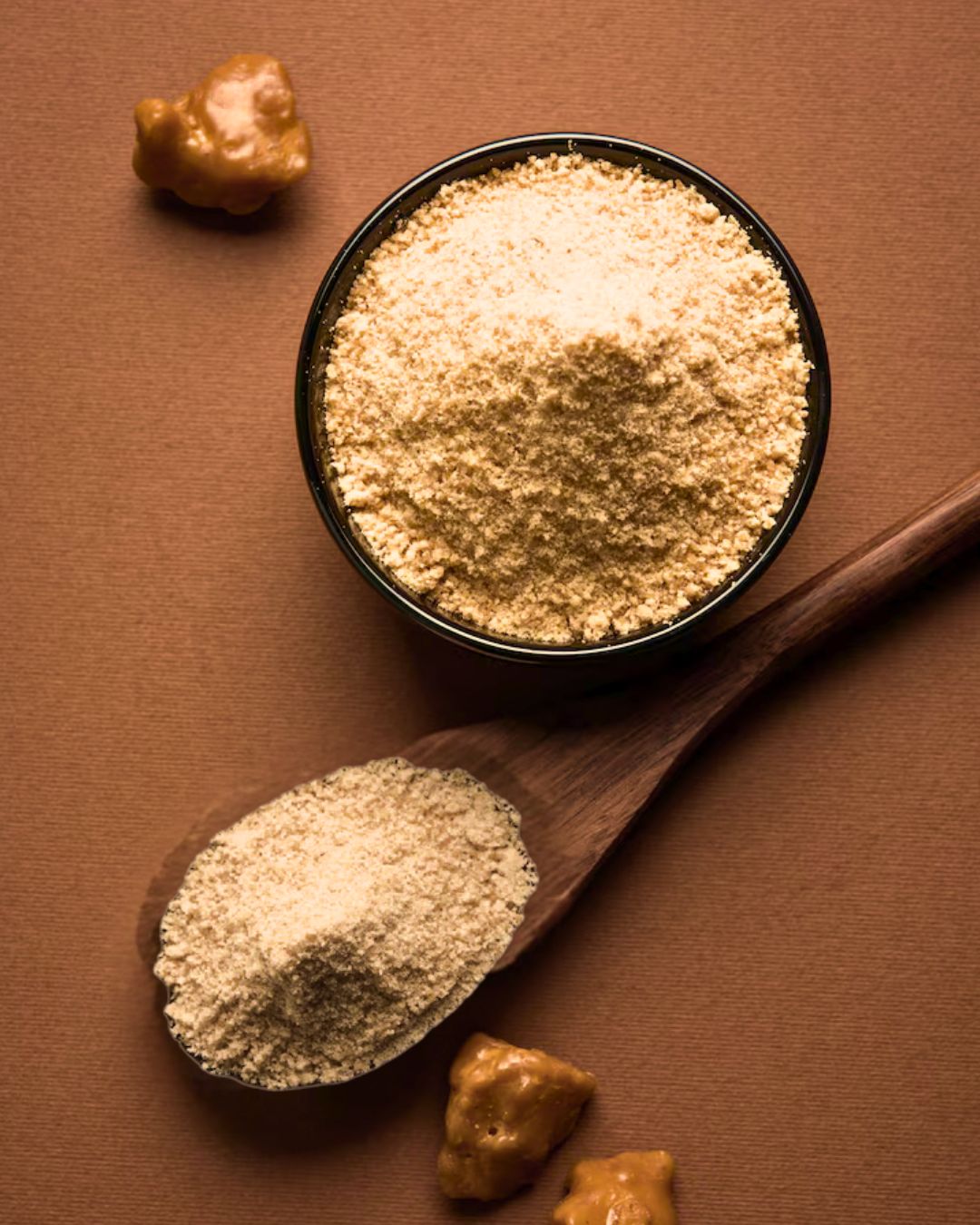
Compounded Asafoetida is Not Adulterated Hing

In the world of asafoetida shopping, confusion reigns supreme. Walk into any spice store, and you'll find two main categories: pure asafoetida and compounded asafoetida. The biggest misconception? That compounded hing is somehow "fake" or "adulterated." Today, we're setting the record straight with facts, science, and practical guidance to help you make informed choices.
The Great Asafoetida Confusion: What Most People Get Wrong
Here's the truth that might surprise you: Compounded asafoetida is NOT adulterated asafoetida. This widespread misunderstanding has led countless consumers to make uninformed purchasing decisions, often paying premium prices for products that may not suit their actual needs.
Let's decode the science behind both types and understand why each has its rightful place in Indian kitchens.
What is Pure Asafoetida? Understanding the Raw Form
Pure asafoetida is the unprocessed resin extracted directly from the Ferula plant's roots. Think of it as the "raw honey" of the hing world.
Characteristics of Pure Asafoetida:
-
Appearance: Hard, resinous lumps ranging from amber to dark brown
-
Texture: Brittle when cold, becomes sticky when warm
-
Aroma: Extremely potent, sulfurous odor that can be overwhelming
-
Purity: 100% natural ferula resin with no additives
-
Usage: Requires grinding or dissolving before use
Why Pure Hing is Challenging for Daily Use:
-
Intense potency - A tiny amount goes an extremely long way
-
Difficult handling - Sticky texture makes measuring and storage challenging
-
Overwhelming aroma - Can dominate dishes if not used carefully
-
Grinding required - Needs preparation before each use
GPC Pure Asafoetida represents the finest quality pure resin, sourced directly from premium ferula plants and processed to maintain maximum potency and purity.
What is Compounded Asafoetida? The Practical Kitchen Solution
Compounded asafoetida is pure asafoetida mixed with approved food-grade carriers like wheat flour, rice flour, or gum arabic. This isn't adulteration - it's intentional formulation for better usability.
Why Compounding is Necessary and Beneficial:
1. Practical Usability
-
Easy measurement - Flows freely like regular spice powder
-
Consistent distribution - Mixes evenly in cooking
-
No preparation needed - Ready to use straight from the container
2. Controlled Potency
-
Balanced strength - Reduces risk of overpowering dishes
-
Standardized concentration - Consistent results every time
-
Beginner-friendly - Perfect for those new to cooking with hing
3. Enhanced Stability
-
Longer shelf life - Carriers protect volatile compounds
-
Better storage - Less prone to clumping or degradation
-
Moisture protection - Prevents resin from becoming sticky
Typical Compounded Asafoetida Composition:
-
Asafoetida resin: 10-40% (varies by brand and grade)
-
Wheat flour/Rice flour: 20 - 30%
-
Gum arabic: 60-70% (natural binding agent)
GPC Compounded Asafoetida maintains optimal ratios to deliver authentic flavor while ensuring ease of use and consistent quality in every pinch.
Pure vs. Compounded: The Detailed Comparison
|
Aspect |
Pure Asafoetida |
Compounded Asafoetida |
|
Potency |
Extremely high |
Moderate to high |
|
Ease of Use |
Requires preparation |
Ready to use |
|
Storage |
Challenging (sticky) |
Simple (powder form) |
|
Price per gram |
Higher |
More economical |
|
Shelf Life |
Shorter (exposed resin) |
Longer (protected resin) |
|
Beginner Friendly |
No |
Yes |
|
Authentic Flavor |
Maximum intensity |
Balanced intensity |
|
Cooking Precision |
Difficult to measure |
Easy to measure |
The Adulteration vs. Compounding Distinction: Know the Difference
Compounding (Legitimate and Beneficial):
- ✅ Declared ingredients on packaging
- ✅ Food-grade carriers like wheat flour, rice flour
- ✅ Standardized ratios for consistent quality
- ✅ Regulatory compliance with food safety standards
- ✅ Enhanced usability for everyday cooking
Adulteration (Illegal and Harmful):
- ❌ Undeclared cheap fillers like chalk powder, starch
- ❌ Artificial colors to mimic authentic appearance
- ❌ Synthetic fragrances to mask poor quality
- ❌ Excessive dilution with minimal actual asafoetida
- ❌ No ingredient transparency on labels
The key difference: Compounding improves usability while maintaining quality, while adulteration reduces quality to increase profits.
How to Identify Quality in Both Types
For Pure Asafoetida:
-
Color: Natural amber to dark brown (avoid artificially bright colors)
-
Texture: Hard and brittle when cool, slightly sticky when warm
-
Aroma: Strong, characteristic sulfur smell (not chemically harsh)
-
Solubility: Should dissolve completely in warm oil or water
-
Source transparency: Clear information about origin and processing
For Compounded Asafoetida:
-
Ingredient list: Clearly stated percentages and components
-
Asafoetida content: Minimum 6-15% for decent quality
-
Color: Natural whiteishish (from Refined wheat flour) rather than artificial bright brown
-
Texture: Fine, free-flowing powder without lumps
-
Aroma: Balanced hing smell, not overpowering or chemical
GPC Quality Assurance: Both our pure and compounded asafoetida undergo rigorous testing for purity, potency, and safety, ensuring you get authentic products every time.
Which Type Should You Choose? A Practical Guide
Choose Pure Asafoetida If:
-
You're an experienced cook comfortable with potent spices
-
You want maximum therapeutic benefits
-
You prefer to control dilution ratios yourself
-
You're making traditional preparations or medicines
-
Price is not a primary concern
-
You have proper storage facilities
Choose Compounded Asafoetida If:
-
You're new to cooking with hing
-
You want convenience and ease of use
-
You cook regularly and need consistent results
-
You're price-conscious and want good value
-
You have limited storage space
-
You prefer measured, balanced flavor
For Most Home Cooks: GPC Compounded Asafoetida offers the perfect balance of authenticity, convenience, and value.
Regional Preferences and Cultural Context
North Indian Kitchens: Typically prefer compounded hing for everyday dal and vegetable preparations
South Indian Cuisine: Often uses both types - pure for specific dishes, compounded for regular cooking
Gujarati Cooking: Strong preference for compounded hing due to frequent use in multiple dishes
Bengali Cuisine: Uses both, with pure hing preferred for fish preparations
The Health Perspective: Pure vs. Compounded Benefits
Pure Asafoetida Health Benefits:
-
Maximum potency of active compounds
-
Higher concentration of volatile oils
-
No additional ingredients for those with specific dietary restrictions
-
Traditional Ayurvedic preparations often specify pure form
Compounded Asafoetida Health Benefits:
-
Easier daily consumption encourages regular use
-
Added wheat flour provides B-vitamins and fiber
-
Turmeric content adds anti-inflammatory properties
-
Better digestibility due to diluted concentration
Important: Both forms provide significant health benefits when consumed regularly. The key is consistent use rather than concentration.
Storage and Shelf Life: Maximizing Your Investment
Pure Asafoetida Storage:
-
Airtight containers essential to prevent moisture absorption
-
Cool, dry location away from heat and humidity
-
Separate storage to prevent aroma transfer to other spices
-
Shelf life: 2-3 years when properly stored
Compounded Asafoetida Storage:
-
Standard spice storage in airtight containers
-
Room temperature storage acceptable
-
Away from direct sunlight to preserve color and potency
-
Shelf life: 3-4 years due to protective carriers
GPC Storage Tip: Both our pure and compounded varieties come with detailed storage instructions to ensure maximum freshness and potency throughout their shelf life.
Making the Right Purchase: Red Flags to Avoid
Warning Signs of Poor-Quality Hing:
- ❌ Extremely cheap prices (often indicates heavy adulteration)
- ❌ No ingredient list on compounded varieties
- ❌ Artificial bright colors (natural hing ranges from cream to brown)
- ❌ Chemical or plastic-like smell instead of natural sulfur aroma
- ❌ Excessive residue when dissolved in water
- ❌ No brand information or contact details
Signs of Quality Asafoetida:
- ✅ Transparent labeling with clear ingredient lists
- ✅ Appropriate pricing reflecting actual quality
- ✅ Natural appearance and authentic aroma
- ✅ Proper packaging that preserves freshness
- ✅ Brand reputation and customer reviews
- ✅ Batch information and expiry dates
The Economic Reality: Understanding Price Differences
Why Pure Asafoetida Costs More:
-
Higher raw material costs (100% resin vs. diluted)
-
Complex extraction process from ferula plants
-
Limited availability of quality resin
-
Specialized handling and storage requirements
Why Compounded Asafoetida Offers Value:
-
Extended usage due to appropriate dilution
-
Reduced waste from easier measurement and storage
-
Consistent results reduce cooking failures
-
Bulk purchasing advantages for manufacturers
GPC Value Proposition: We offer both options at fair prices, ensuring you get genuine quality regardless of your choice.
Expert Recommendations for Different Cooking Styles
For Traditional Cooking Enthusiasts:
Start with GPC Pure Asafoetida for authentic experiences, keeping GPC Compounded for daily cooking convenience.
For Busy Home Cooks:
GPC Compounded Asafoetida provides the perfect balance of flavor, convenience, and health benefits for regular meal preparation.
For Health-Focused Consumers:
Both types offer significant benefits - choose based on your comfort level and cooking frequency rather than perceived health superiority.
For Professional Chefs:
Consider both types: pure for signature dishes requiring maximum impact, compounded for consistent everyday preparations.
Frequently Asked Questions
Q: Is compounded asafoetida less healthy than pure asafoetida? A: No. While pure hing has higher concentration, compounded hing often leads to better health outcomes because it's used more regularly and consistently.
Q: Can I make my own compounded asafoetida at home? A: Yes, but achieving proper ratios and consistent quality requires experience. GPC Compounded Asafoetida offers professionally balanced formulations.
Q: How can I tell if my hing is adulterated vs. legitimately compounded? A: Check for transparent labeling, natural color and aroma, proper dissolution in oil, and purchase from reputable brands like GPC.
Q: Which type is better for digestive benefits? A: Both provide excellent digestive benefits. Compounded hing might be better for daily use due to ease of consumption.
Q: Can I substitute one type for the other in recipes? A: Yes, but adjust quantities: use 1/4 to 1/3 the amount when substituting pure for compounded hing.
The Bottom Line: Making an Informed Choice
The choice between pure and compounded asafoetida isn't about "better" or "worse" - it's about understanding your needs, cooking style, and preferences. Both forms have their place in a well-equipped kitchen, and both offer significant health and culinary benefits when sourced from quality suppliers.
Remember: Compounded asafoetida is not adulterated asafoetida. It's a thoughtfully formulated product designed to make this powerful spice more accessible and user-friendly for everyday cooking.
Your Next Step: Choose Quality, Choose GPC
Whether you opt for the intense purity of GPC Pure Asafoetida or the practical convenience of GPC Compounded Asafoetida, you're choosing quality, transparency, and authentic flavor that enhances both your cooking and your health.
Ready to experience the GPC difference? Explore our complete range of pure and compounded asafoetida products, each crafted with the highest standards of quality and purity. Your kitchen - and your health - will thank you.



